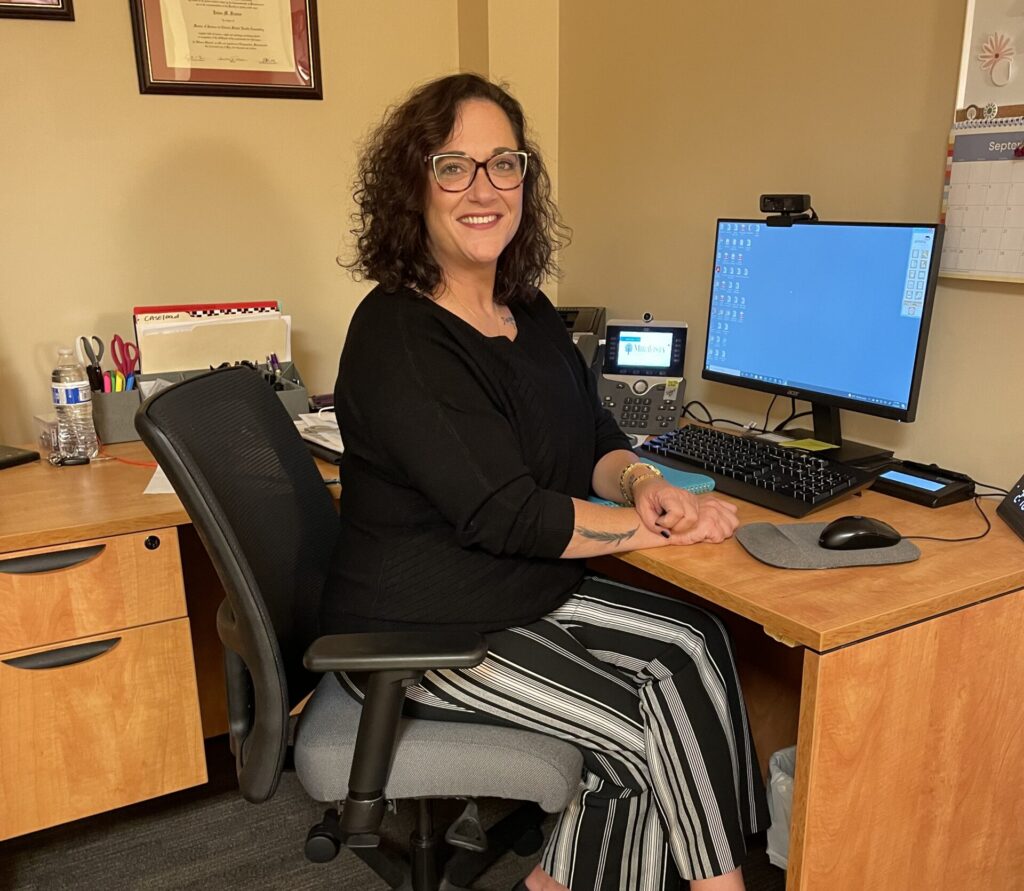September is National Recovery Month, something Jaime Frazier, a clinician in the outpatient methadone program at MiraVista Behavioral Health Center, knows well as do the individuals she works with in sustaining recovery through counseling and medication-assisted treatment for opioid use disorder.
Recognition of the month this year prompted a number of clients in her group session to create posters about recovery. Those posters are now on display in an area of the clinic where clients meet and are also being treated during September to breakfast-on-the go.
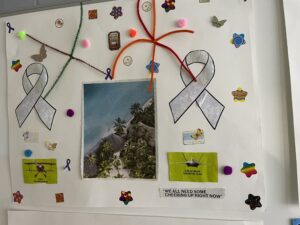 “Recovery should be celebrated regularly, but Recovery Month allows us to honor those within recovery and recognize all the effort that goes into remaining in recovery, but it also gives those still struggling with addiction an opportunity to seek and ask for help,” said Jaime of the month’s significance. “Achieving and maintaining recovery is one of the hardest things a person will do and it is important to honor that.”
“Recovery should be celebrated regularly, but Recovery Month allows us to honor those within recovery and recognize all the effort that goes into remaining in recovery, but it also gives those still struggling with addiction an opportunity to seek and ask for help,” said Jaime of the month’s significance. “Achieving and maintaining recovery is one of the hardest things a person will do and it is important to honor that.”
Jaime said the suggestion to create posters to decorate the room where the group meets came from its members who both enjoyed the creative aspect of the project and the bonding it offered in sharing experiences in a visual way.
“Some group members worked in pairs and some on their own, it was interesting to watch them work together on what ‘recovery’ is for them,” Jaime said. “Some members really took their time to come up with a ‘theme’ for their posters while others were happily gluing whatever they liked on their posters.”
She called the project a “nice opportunity” to watch unfold.
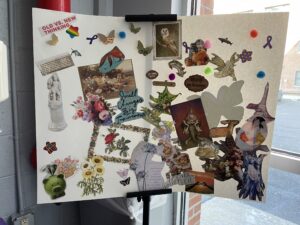 “It was a nice opportunity to see how they interacted with each other to be creative about recovery especially since there are varying levels of recovery within the group,” Jaime said. “I feel as though this was not only something fun to do in group for Recovery Month but also allowed the group an opportunity to bond with each other.”
“It was a nice opportunity to see how they interacted with each other to be creative about recovery especially since there are varying levels of recovery within the group,” Jaime said. “I feel as though this was not only something fun to do in group for Recovery Month but also allowed the group an opportunity to bond with each other.”
Recovery occurs in phases. Medication-assisted treatment is given to help ease withdrawal symptoms and can be prescribed long-term to help prevent relapse.
Jaime, who joined the MiraVista team in December 2021, said she “currently has a caseload of about 60 patients all in varying phases of their recovery.”
“I really enjoy working with this population of patients, watching someone grow from such a desperate place to realizing that they are worthy of recovery is truly an amazing thing to witness,” Jaime said. “My direct supervisors here at MiraVista appear to truly care about the team and the patients.”
Jaime has worked in the field of mental health since 2014 with much her career focused on substance use and co-occurring disorders.
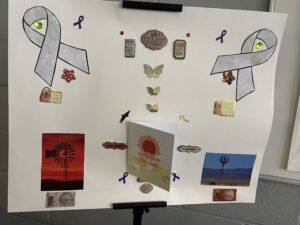 “Addiction comes with a lot of guilt and shame over actions people have taken during the throws of their addiction and watching someone grow and learn who they are as an individual free from substances is something I am honored to be a part of,” she said. “Our patients share with us some of their deepest darkest secrets and having someone trust in you that way is a blessing.”
“Addiction comes with a lot of guilt and shame over actions people have taken during the throws of their addiction and watching someone grow and learn who they are as an individual free from substances is something I am honored to be a part of,” she said. “Our patients share with us some of their deepest darkest secrets and having someone trust in you that way is a blessing.”
She added that there are “so many challenges that one encounters throughout recovery.”
“In my opinion one of the biggest challenges for patients is that they don’t always feel ‘worthy or deserving’ of being in treatment,” Jaime said. “Also, the fear of living differently is a big challenge for many patients. They have used substances for the majority of their adult lives and looking at a life that doesn’t include substances can be very overwhelming despite their desire to no longer use.”
She said “the familiarity of using is sometimes easier than facing the fear of what life looks like without using.”
“There is a lot of commitment that goes into someone entering treatment here,” Jaime added. “A lot of patients work and figuring out how to attend the clinic every day and be at work on time or getting kids off to school are challenges that they face daily.”
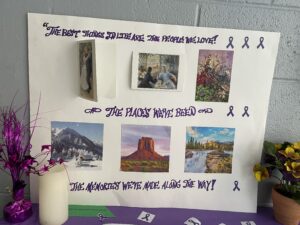 MiraVista’s recovery programs for substance use include Acute Treatment Services (detox), Clinical Stabilization Services (post-detox), and outpatient services that offer Medication Supported Recovery, counseling, day treatment programming and a variety of relevant groups.
MiraVista’s recovery programs for substance use include Acute Treatment Services (detox), Clinical Stabilization Services (post-detox), and outpatient services that offer Medication Supported Recovery, counseling, day treatment programming and a variety of relevant groups.
Medications for opioid use disorder (MOUD) is treatment that combines the use of FDA-approved drugs, such as methadone, buprenorphine, and extended-release naltrexone, with counseling and behavioral therapies for people diagnosed with opioid use disorder (OUD).
Since opening 17 months ago, MiraVista, which offers psychiatric and substance use recovery treatment to both adolescents and adults, has served 15,000 thousand inpatient bed days, and had over 300,000 outpatient visits.
www.miravistabhc.care/413-701-2600

